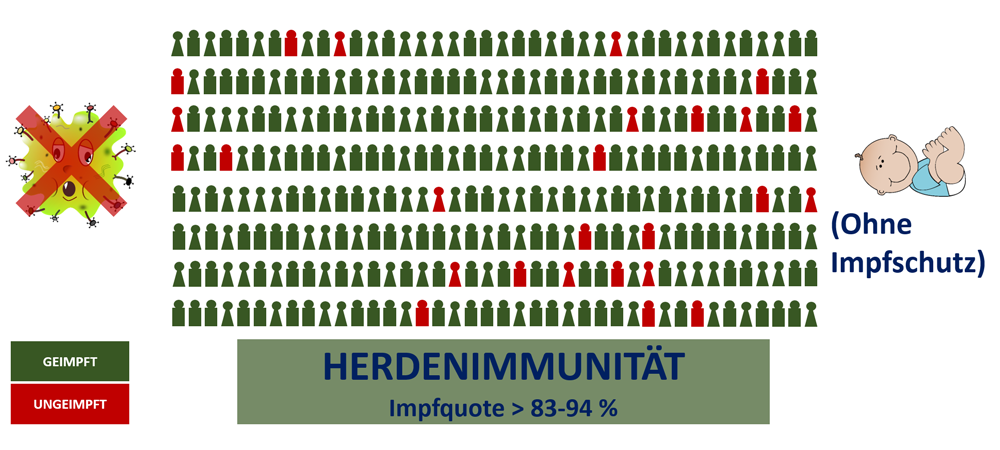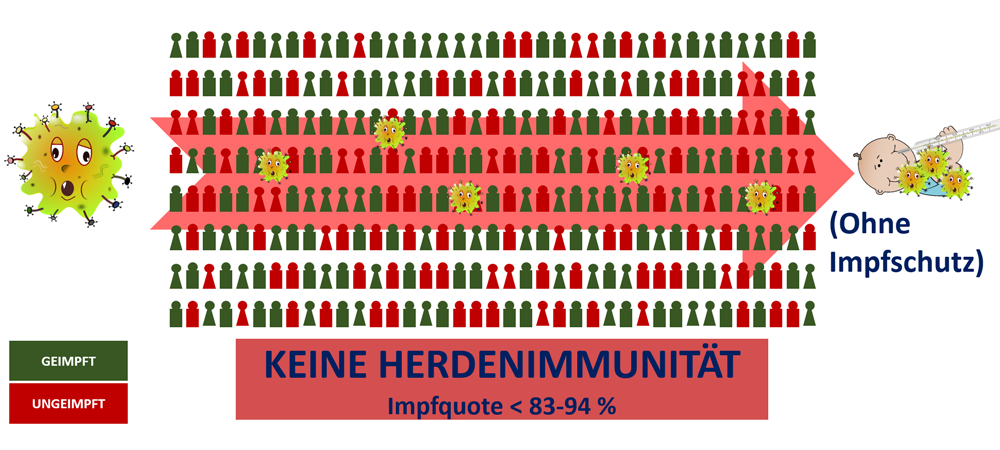
When you are vaccinated, you primarily protect yourself (individual protection). Nevertheless, there are groups of people in a society who cannot get vaccinated. These are e. g. chronically sick, infants, the elderly, people with certain allergies, etc. In addition, there are people for whom vaccinations are not effective (so-called non-responders). These groups of people together do not have sufficient vaccination protection and are helplessly exposed to some very dangerous pathogens. Nevertheless, there is a certain vaccination rate for each pathogen, which is referred to as herd immunity. If the vaccination rate in a society exceeds this threshold, pathogens cannot spread and therefore do not reach the unvaccinated individuals in society, who are usually much more susceptible to complications of diseases than healthy individuals.
The vaccination rate, from which one speaks of a herd immunity, is located between 83-94% (depending on the aggressiveness of the pathogen) specific to the pathogen. Current measles cases in the USA and Germany show what can happen if this rate is not reached. As a reminder: Measles should be exterminated long ago (especially in Europe) and can lead to brain inflamations and pneumonia, deafness and death.


- Walayat S. Recent advances in vaccination of non-responders to standard dose hepatitis B virus vaccine. World Journal of Hepatology. 2015;7(24):2503. https://www.ncbi.nlm.nih.gov/pmc/articles/PMC4621464